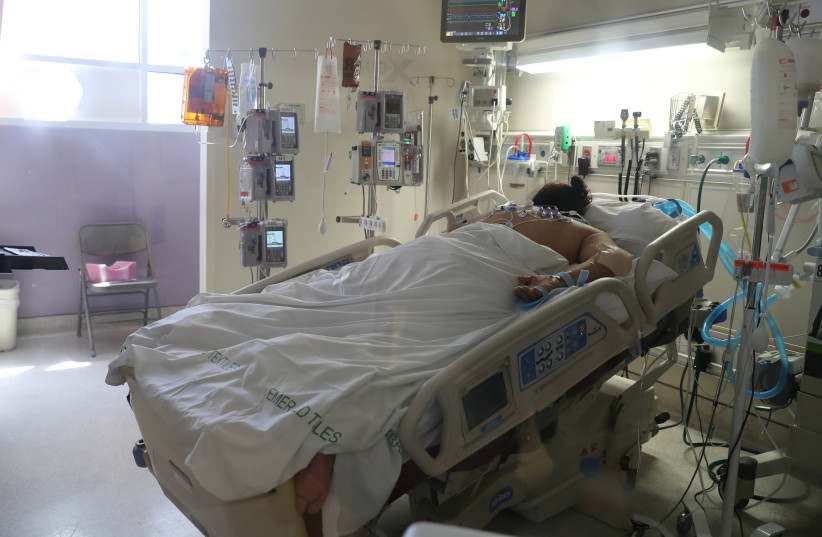Weight loss via surgery can reduce the risk of becoming severely ill from COVID-19, researchers from the Cleveland Clinic found in a study published on Wednesday in the peer-reviewed journal JAMA Surgery.
While it is already known that obesity increases the chances of developing serious COVID-19 symptoms because of impaired respiratory function and heart problems associated with the condition, it was not previously proven that surgical weight loss decreases these risks.
In order to determine whether prior surgical weight loss might reduce the risk of COVID-19 complications, the researchers studied 20,212 adults with obesity, 5,053 of whom had a body mass index (BMI) of 35 or higher (severe to morbid obesity) and had undergone bariatric surgery at the Cleveland Clinic Health System between 2004 and 2017. This group was compared at a ratio of 1:3 with patients who did not undergo weight-loss surgery. The 15,159 remaining patients were a control group.
Prior to the outbreak, weight loss and death from non-COVID-related causes were examined.
Patients who had received bariatric surgery lost 19% more body weight before the COVID-19 outbreak began in Cleveland on March 1, 2020, than those who had not received surgery.

After the outbreak, four outcomes were assessed: "positive SARS-CoV-2 test result, hospitalization, need for supplemental oxygen, and severe COVID-19 infection (a composite of intensive care unit admission, need for mechanical ventilation, or death)."
Researchers found that the rate of contracting SARS-CoV-2 was comparable, with 9.1% of patients who had received bariatric surgery before the outbreak contracting the virus and 8.7% of those who had not received surgery contracting the virus. However, the group that had undergone weight loss surgery was 49% less likely to be hospitalized due to COVID-19, some 63% less likely to require supplemental oxygen and 60% less likely to develop severe complications from the disease as opposed to patients who had not undergone weight loss surgery.
The results indicate that "substantial weight loss achieved with surgery was associated with improved outcomes of COVID-19 infection... [suggesting] that obesity can be a modifiable risk factor for the severity of COVID-19 infection."
This means that weight loss could be an important strategy to improve outcomes in COVID-19 patients, especially in the US, where obesity is widespread.
Steven Nissen, MD, senior study author and Chief Academic Officer of Cleveland Clinic's Heart, Vascular and Thoracic Institute, stressed this point: "Striking findings from the current study support the reversibility of the health consequences of obesity in the patients with COVID-19.
"This study suggests that an emphasis on weight loss as a public health strategy can improve outcomes during the COVID-19 pandemic and future outbreaks or related infectious diseases," he said. "That is a very important finding considering that 40% of Americans have obesity."
